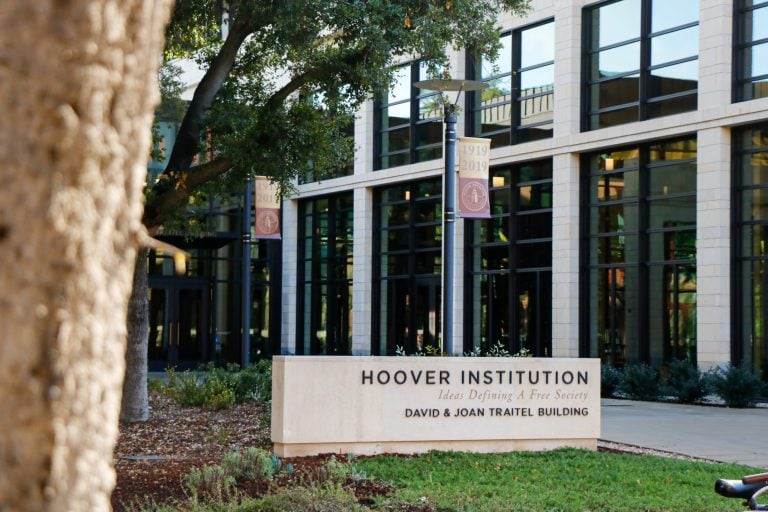At the last Faculty Senate meeting, a few senators, in a highly unusual procedural move, surprised the body by introducing a controversial motion that “the association of Rebekah Mercer and Rupert Murdoch in all positions of responsibility or honor at Stanford University be terminated due to their promulgation of dangerous, racist and antisemitic misinformation.” As everybody in the room knew, neither Mercer or Murdoch promulgated such information. They own news organizations that have been accused of promulgating such positions. It is a well-accepted tenet of journalism that owners of newspapers do not have direct control over content. But leaving that aside, what if they did? Would that be a reason to terminate their association with Stanford?
As I understand the argument made by the proponents of this motion, the notion of academic freedom is fine unless it concerns a certain set of abhorrent ideas agreed on by the vast majority of society. This argument ignores the fact that this is exactly the position the people who hold the abhorrent views take. For example, Hitler believed in academic freedom so long as you agreed the Jews were such an evil they needed to be exterminated. I am not making a reductio-ad-absurdum argument here. I mean this seriously. Nazis do not walk around believing they are bad people. They believe that their principles are actually so good that they do not need to be put to public debate. They believe that these ideas should be imposed on people who are too ignorant to understand. Most of my mother’s family was killed in the Holocaust as a direct result of that belief.
The proponents of the Senate’s motion feel that their views are universally accepted and that that justifies the view that these subjects are beyond debate. I grew up in South Africa under apartheid. There, it was almost universally accepted amongst white people that races could not get along and needed to be forcibly separated. Some people were put in jail if they opposed that view. If you were white, you were certainly socially ostracized if you held the opposing view. And when you would argue for another view, people would cite exactly the same argument. They would say that freedom of speech was not absolute, that races just couldn’t get along, that black people were anyway inferior, that that was obvious, universally agreed. They believed white South Africans knew better than the rest of the world. Just like in countries in which women do not have equal rights to men, people in those countries argue that the status of women is not up for debate, that the West is a cesspool because western societies allow people to debate anything, that in an ideal society freedom of speech requires curtailment. Ironically, in South Africa at the time, the one place you could hold the opposite view was on the University of the Witwatersrand campus, where there was academic freedom.
When you take the position that there are subjects and views that are not acceptable under academic freedom then in fact you do not have academic freedom. This is not an academic point I am making. It is what is going on right now on this campus, as was so graphically illustrated at the Law School last quarter.
I agree with the senators who proposed the motion that racism and sexism are abhorrent ideas. I am certain that every person on the Faculty Senate also agrees with this. Under my set of values, these ideas are abhorrent. But for the reasons I have already enunciated, I do not support censoring people so they cannot debate these ideas. But there is another reason, perhaps more important, not to censor debate or exclude people with these ideas. By censoring debate, you take away any opportunity to change the mind of the people with those views. Instead, you send the message that perhaps the reason you do not want to debate the ideas is that you cannot provide a logical argument opposing them. That is an exceedingly dangerous and destructive message. I want to debate those views precisely because I believe it is exceptionally simple to provide a logical argument why those views are incorrect. The stance that there are some subjects that cannot be debated removes my ability to make that argument.
The arguments I have made in this opinion piece are not new. They were embodied in the Constitution of the United States over 200 years ago. I also do not think that they are particularly controversial. For more than a century the stakeholders of this institution have worked extremely hard to transform a small regional institution into what I would argue is the best university in the world. Part of that struggle was establishing the modern notion of academic freedom.
Now that the preeminence has been achieved: the current stakeholders of Stanford have a choice that past stakeholders did not have. They can continue doing the hard work that is required to maintain the preeminence or they can sacrifice that preeminence for their own ends. This is not a hypothetical choice. Research and education cannot prosper in a world that does not consider ideas that run counter to prevailing wisdom. Without the notion of academic freedom that includes listening and debating not just pleasant but also unpleasant ideas, the quality of the institution cannot be maintained. The fight to maintain academic freedom at Stanford is the same fight to maintain preeminence.
